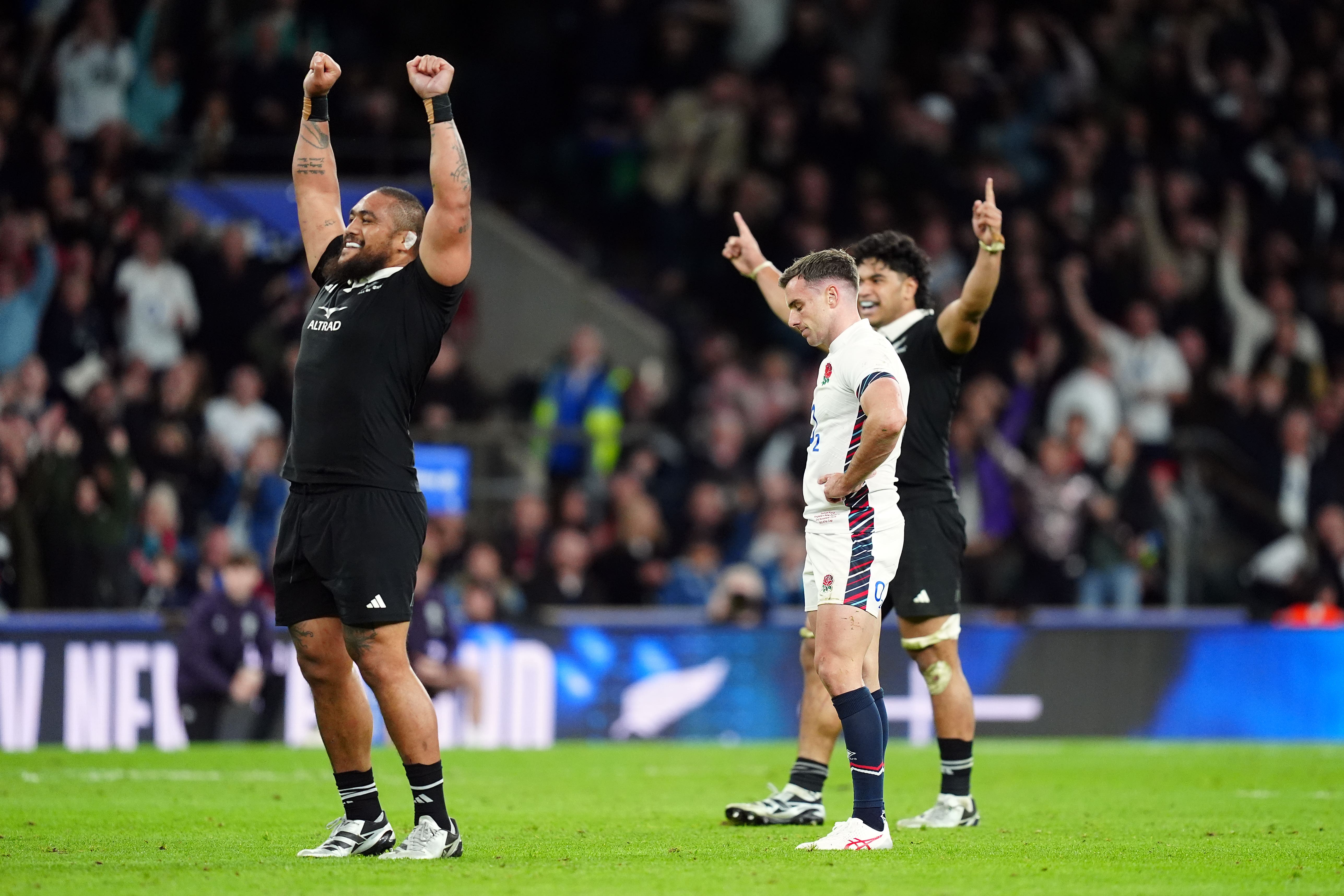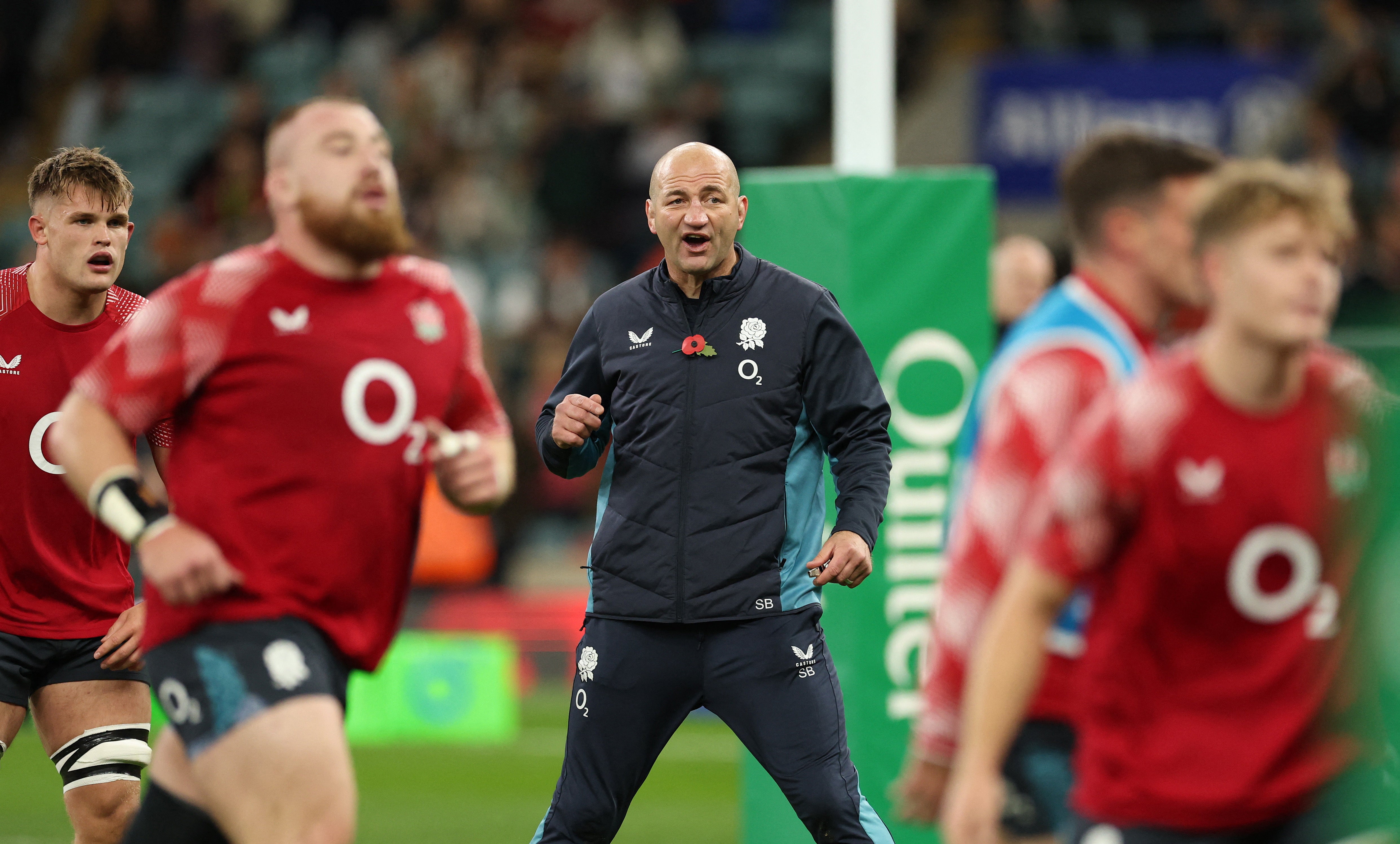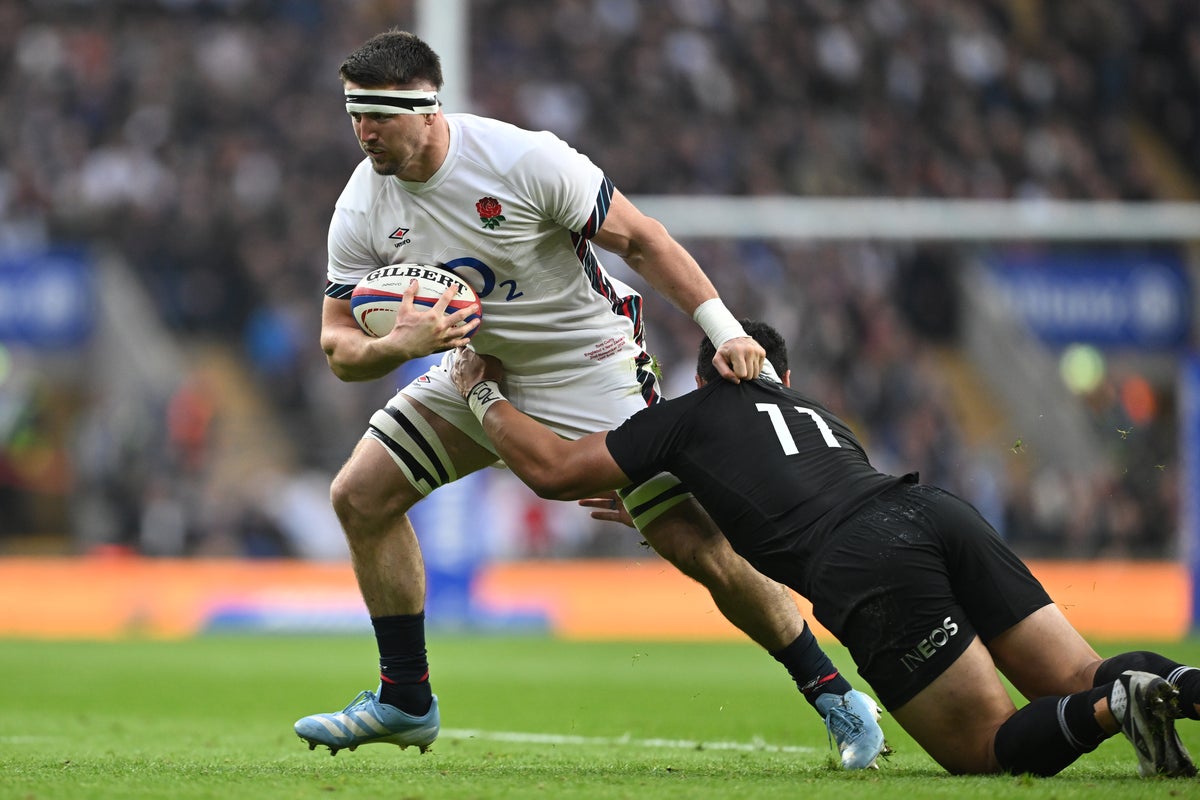Your support helps us to tell the story
From reproductive rights to climate change to Big Tech, The Independent is on the ground when the story is developing. Whether it’s investigating the financials of Elon Musk’s pro-Trump PAC or producing our latest documentary, ‘The A Word’, which shines a light on the American women fighting for reproductive rights, we know how important it is to parse out the facts from the messaging.
At such a critical moment in US history, we need reporters on the ground. Your donation allows us to keep sending journalists to speak to both sides of the story.
The Independent is trusted by Americans across the entire political spectrum. And unlike many other quality news outlets, we choose not to lock Americans out of our reporting and analysis with paywalls. We believe quality journalism should be available to everyone, paid for by those who can afford it.
Your support makes all the difference.Read more
South Africa may be back-to-back world champions and ever more established as the best men’s Test team on the planet but there a certain aura that accompanies the arrivals of the All Blacks. “When was the last time we beat them?” Ben Earl replied, curtly, when asked after England’s win over Fiji if New Zealand remained the ultimate challenge. “It certainly feels that way.”
The answer, of course, to Earl’s question is the 2019 Rugby World Cup semi-final; to find a victory at Twickenham, one has to go back to that day in 2012 which perhaps still stands as the high watermark for an English performance on home soil. In fact, in a history of conflict that stretches all the way back to a lone meeting at Crystal Palace in 1905, one can find only eight defeats for the All Blacks.
“History matters and how you’ve done it. We’ll reflect on that, but also what’s happened since,” New Zealand coach Scott Robertson said on Monday. “You look at what other teams have done before and how we can tap into that. So yes, we look at the history.”

open image in gallery
England suffered three defeats against the All Blacks last year (PA Wire)
This current crop may not be the all-conquering All Blacks of yore but reports of their demise have perhaps been exaggerated. They did, England have readily recalled in the last few days, beat Steve Borthwick’s side three times last year in a series of fixtures that encapsulated their struggles as the head coach sought to evolve the team. In each of the three contests, and perhaps most strikingly at Twickenham last November, England navigated their way into a winning position and then out of it – the width of a post may be all that separated them from success in that Allianz Stadium encounter but the pattern was all too evident.
How the story can shift. England will arrive on Saturday after nine consecutive victories having corrected their final-quarter maladies after a shift in selection that began during the Six Nations and is strikingly evident now. For a second game this November, Borthwick’s bench to take on New Zealand contains five British and Irish Lions, among them key leaders like Ellis Genge and Tom Curry.
“With Test matches at this level, it needs one to 23 and it needs to be a full 80-minute performance,” Borthwick explained. “As we found out 12 months ago against New Zealand, and as we keep finding out in more of these Test matches, you observe that the scores are very, very tight in that final quarter.

open image in gallery
The introduction of Henry Pollock and the rest of England’s bench helped turn the game against Australia (AFP via Getty Images)
“I think we’re in a fortunate position to have strength in depth. I am looking forward to that moment when those players do come onto the pitch and I hear the crowd roar, and I think the crowd’s got a huge part to play this week.”
In each of the last two weeks, Borthwick has introduced five bench forwards in unison. The calibre of player is significant, of course, but there is also something psychological in their freshness and energy, lifting any flagging teammates as well as the crowd. There is a certain symbolism, perhaps, in their fresh white jerseys – and those starters staying on have spoken of the impact they’ve felt in wins over Australia and Fiji.

open image in gallery
George Ford’s last-minute drop goal sailed wide to hand New Zealand victory last November (Getty Images)
While George Ford, re-installed as starting fly half this week, and Dan Cole provided experience off the bench against the All Blacks last November, some of the other replacements were short on top Test experience – which proved costly as Ford’s drop goal slipped by at the last. One only has to look back to the defeat to Ireland at the start of the Six Nations for a set of substitutes with a callow cap count of 81; this weekend, the magic number, even with Ollie Chessum and Tommy Freeman ruled out through injury, is 317. Even Ben Spencer, one of the more inexperienced members of the group, has won five Prem titles.
The developing depth is clear when scanning England’s wider squad, aided by the natural opportunity that comes in a Lions summer. The starting front row of Fin Baxter, Jamie George and Joe Heyes started the first Test against Argentina together in July and then against Australia a fortnight ago, while the same is true of Guy Pepper and Sam Underhill on the flanks, with the pair bringing additional familiarity from Bath. “You can see so many games now going into one score game in the final quarter,” Borthwick suggested. “So having players who play together regularly, train together regularly and have experience of having seen these situations before, that is really important.

open image in gallery
Steve Borthwick knows his bench will be key on Saturday (Action Images via Reuters)
It is also clear how Test rugby has changed, with the Springboks showing over a long period of time the impact that an impactful bench can have. England felt that against New Zealand last year, and have seen it of late from Damian McKenzie in a bench closing role, though Borthwick thinks counterpart Robertson may bring the playmaker in to his starting side having generally gone for a heavier kicking strategy against England in previous meetings.
England’s head coach has underlined this week that the hosts will have to go deep into the well and win the game multiple times – Scotland can attest to how the All Blacks can roar back off the ropes. A heavy kicking strategy, built around Borthwick’s belief that “brilliant basics” are a necessity, is also likely.
“There is no doubt playing against New Zealand, the team is going to have to dig very, very deep,” Borthwick stressed. “There’s a team that’s going to have to go into a place where there is pain and suffering, and there’s going to be this need to keep running. If you look back to the game 12 months ago, it ended up being so tight. There were just a couple of moments where we didn’t quite get our defence right, and Will Jordan cut through. We didn’t get our basics quite right.
“There’s a need for this to be the most selfless team performance England have produced, because that’s how good New Zealand are. The players are going to have to give absolutely everything.”

